Eurabian Revival: An Ishmaelite Odyssey
In which Yours Truly Dictates Shaykh Abdal Hakim Murad's Beautiful Essay!
An inspiring scene of Ishmael standing before a grand mosque that merges traditional Islamic design with contemporary European elements, surrounded by supporters united in their vision for a new cultural renaissance.
Some time ago, Yours Truly smelted some DOOM wares to touch upon the matter of Eurabia:
Several commentators noted that ‘Islam is an Alien Religion & will never be accepted by Europeans!’ even if it is the case that a future Eurabia would generate several Boons for all parties involved, Muslim & non-Muslim, European & non-European.
Initially, Yours Truly pondered about smelting some DOOM wares to respond to such points. Then I recalled that a few years back, Shaykh Abdal Hakim Murad had already penned a superb essay on not just the migration issue but likewise the broader malaise in the West!
The full text of said excellent essay follows, penned by the eminent Shaykh!
Shaykh Abdal Hakim Murad is the Dean of Cambridge Muslim College in the UK. He was educated at Cambridge, Al-Azhar, & the Free University of Amsterdam. He is currently a University Lecturer in Islamic Studies at the Faculty of Divinity at Cambridge University.
His essay, ‘On Migrating to Lands of Melancholy,’ is an excellent resource for those wishing to understand how Muslims view the Melancholy continent (i.e., Europe) & how the migration issue is understood overall by a sizable plurality of Muslims (laity & scholars alike).
I have linked the original Essay above for those willing to read it at Renovatio: The Journal of Zaytuna College instead. Please check them out for all the excellent work they have put out, Dear Listeners & Readers! I guarantee that it will be time well spent!
The Shaykh does a far more excellent job ( than I ever could! ) of responding to many of the expected points raised by those who view Migration as strictly negative in most instances.
Without any further adieu, here is the full text of the essay mentioned earlier!
On Migrating to Lands of Melancholy
Published February 19 (2021) at Renovatio: The Journal of Zaytuna College
Melancholy, Edvard Munch, 1894
“Pebbles which the waves suck back, and fling,
At their return, up the high strand,
Begin, and cease, and then again begin
With tremulous cadence slow, and bring
The eternal note of sadness in.”
Ever since its 1867 publication, which provoked the dismayed disapproval of what was then a still firmly Christian England, Matthew Arnold’s poem “Dover Beach” has been known as one of the most iconic and wistful anthems of the modern loss of faith. As the lines gently move the reader on, a note of weltschmerz appears and grows, as the poet sorrowfully compares the ebbing Channel tide to the decline of the once rich and meaningful Christian worldview, which, to the poet, seemed to be increasingly undermined by science and the critical study of scripture.
“The Sea of Faith
Was once, too, at the full, and round earth’s shore
Lay like the folds of a bright girdle furl’d;
But now I only hear Its melancholy, long, withdrawing roar.”
Since Arnold’s time, a century and a half of extreme events and cultural upheavals have left us so far on the other side of modernity that the girdle has fallen away and the once-loud roar itself seems hardly audible to most, submerged as we are in an age of postmodern non-referentiality in which all claims to truth are savored only as ironies, while humanity seems no longer conscious of the evident fact that it was designed, or has evolved, to swim in a spiritual sea.
Dover’s shingled beach is still there, of course, but it has become, in our traumatized and unsteady twenty-first century, the site of a different and unexpected wave, this time of a distressed refugee humanity. By the middle of 2020, more than two hundred migrants every night were making the hazardous and illegal Channel crossing to where “the cliffs of England stand.” Today’s Dover Beach is littered each morning with abandoned life vests and sometimes with the bodies of the drowned, as Border Agency staff lead the surviving castaways up the slope toward the town’s police station.
Europe no longer has a God, and hence it hears everything as the roar of broken fragments whirled around in meaningless though strangely evocative cycles of advance and regression.
It is an irony and a calamity of our times that ninety percent of those who complete this odyssey and stagger up the beach are Muslims. The great symbol of a departing Christianity seems to have become an emblem of an arriving but destitute Islam. Let us, in this essay, ponder this strange circumstance by tracing the imaginary but emblematic case of one such voyager: let him be a Syrian, drenched and fatigued yet wary and alert, praying that God should help him during the Home Office inquisition that is sure to come. Let us call him Ishmael.
This damp but hopeful figure, who has fled the hecatombs of a Middle East shattered by foreign invasion, climate change, and the endemic civic corruption that has recently triggered the explosion that destroyed Beirut, stands boldly, far seeing, and sinless upon Dover Beach.1 The London tabloid headlines, reverting to distant wartime memories of the white cliffs cherished as symbols of virginal English inviolability, scream accusingly of an “invasion,” but by all historic moral measures our Ishmael should be reckoned a hero, the survivor of a transcontinental epic ordeal, a modern champion of the will. After fleeing despair to save or improve himself, crawling under the barbed-wire fences that have sprung up across Europe, and perhaps stripped of his savings by trafficker mafiosi, his successful arrival at Dover indicates that he is very likely to be a superior human being. He is prepared to work long hours for miserable wages and to assert himself in the roughhouse of London ghetto streets; he is confident of his masculinity; he hopes to build and lead a traditional family.
Although the Europe that receives him is a continent afflicted by demographic collapse, it nevertheless struggles with its evident and urgent need for this virile new principle that promises to rejuvenate the cultural and genetic life of its ageing and enervated liberal republics. Across the continent the average birthrate has declined to a fatal 1.9 children for each mother; in Italy, each hundred deaths is matched by only sixty-seven births, a figure that has collapsed catastrophically from ninety-six only ten years ago.2 In Serbia in 2019, 64,399 people were born while 101,458 died, the disparity intensified by an estimated 150,000 official and unofficial abortions.3
Our Ishmael is unlikely to admire the mean and brutal culture of abortions or the new hyper-liberal doctrines of gender plasticity that he will learn about beyond the cliffs; still less will he respect the fanatic modern assault on “toxic masculinities”; he is not “woke” and he is unlikely to become so. From the arid rational perspective of Europe’s Darwinian religion, he is nature’s answer to the continent’s biological failure, since for Darwin, only the strong have the right to exist and reproduce, and he has shown himself strong. Perhaps as a symptom of Europe’s half-conscious but deep insecurities, this is why Léon de Pas’s sculpture Europa and the Bull stands so proudly outside the European Union’s headquarters in Brussels. The ancient Greeks believed that the original Europa was a Lebanese girl carried westward by Zeus, who, taking the form of a bull, fathered children by her. There is surely no more perfect icon than this for modern Europe: the bull, symbol of the vibrancy of stocks and shares and hence of the success story of Europe’s postwar economic miracle, still needs to import an Arab fertility if it is to survive. As they gaze from their windows at the sculpture, many Eurocrats feel traumatized by this inconvenient truth. Their hi-tech yet crepuscular fin du monde is being triumphantly countered by Islam’s revitalization of the origine du monde, which says to the growing Muslim presence, in hoc signo vinces.
Standing on the shingle, Ishmael intones these words: “And whoever migrates in God’s path shall find much refuge and abundance in the earth” (Qur’an 4:100). Leaving his destroyed home he has come in hope, and hope is, as Moltmann says, the defining theistic response to disaster. But this hope is seldom reciprocated, for not only does Europe not publicly admit the demographic and economic necessity of Ishmael’s heroic journey, but in the form of widening populist movements it finds itself rising up in a continent-wide spasm of repudiation and fear. Theologians will wish to reflect carefully on the rising class of xenophobes who seek Canute-style to turn back the migrant waves, but who are nonetheless more contested here than in America, Europe not yet having publicly adopted the straightforward choice of a “Muslim Ban.”4
How the populists will treat Ishmael when they finally achieve power is unclear; yet Europe, whose modern history has been a tale of “narrow squeaks and unexpected twists,”5 may well be headed toward another of its great convulsions. If Israel, that self-proclaimed champion of Western morality, can deploy snipers to kill unarmed refugees who cross the Gaza fence, there is no strong reason to suppose that lethal force on a large scale will not be used by Europe’s democracies faced with growing streams of desperate Ishmaelites pressing against national boundaries, while those already within the gates will be classed as a fifth column to be scrutinized by a revived Inquisition, amid a series of terrifyingly public autos-da-fé. Europe’s philosophically feeble Weimar-style hedonism and individualism may once more fail to resist a frightened nativism that reaches for the visible Semitic Other as the ideal scapegoat for its fears, being both different and vulnerable. But as Auden felt in 1939, we will only know the next chapter in our fractured continent’s history when we actually see it.
“In the nightmare of the dark
All the dogs of Europe bark,
And the living nations wait,
Each sequestered in its hate.6”
In this essay we will offer no such dire prophecies but will instead narrow our focus by surveying two allied and interactive features of this Ishmaelite precarity. The first concerns the crisis of Europe’s modernity, its inner emptiness, for we can scarcely hope to understand the burgeoning anti-Ishmael activism of the Left and Right on our continent without conceptually and empathetically entering the end-of-modernity space and the traumas that populate it. Matthew Arnold predicted and gave voice to a melancholy that has now spread across the landmass like a dark and sorrowful cloud: Europe no longer has a God, and hence it hears everything as the roar of broken fragments whirled around in meaningless though strangely evocative cycles of advance and regression. There is no End of Days to give meaning to time, and there is not even a Hegelian promise of synthesis and linear advance.
Detail of Melancholy, Lucas Cranach the Elder, 1532
Lars Von Trier’s 2012 masterpiece Melancholia deals unflinchingly with this European loss of heart. The film is inspired by Lucas Cranach the Elder’s painting of the same name, which may be seen in Denmark’s National Gallery. Cranach’s allegory reassured its generation that the sorry overwhelmings humans experience in their lives and the knowledge of their mortality are to be carried bravely, with the help of a lively Lutheran confidence in God. But Von Trier’s portrait is of our new European atheistic normalcy, a stubborn and painful bereavement following God’s unexpected death. Even the Enlightenment promise of a liberated human will and a golden technological future has been broken, since climate change (figured in the film as an impending asteroid collision with Earth) now threatens us with complete and final annihilation. The two sisters who carry the film’s plot can find no solace or reprieve from this secular eschaton and embody allegories of the twin modern apocalyptic plagues of Anxiety and Depression—as the latter appallingly tells the former, to the sound of the disturbing interrupted cadences of Tristan und Isolde, “There is nothing else!”
This fin du monde trope is settled deeply in our modern psyche, a germ eating at the already rotting foundations of Enlightenment optimism and hope. Martin Rees, currently Britain’s Astronomer Royal, predicts an end to our species within a hundred years: the multiplication of nuclear, bacteriological, nanotechnological and climate-change threats makes this, he assures us, something like a certainty.7 James Lovelock’s most recent book foretells our extinction through climate change, but on Darwinian grounds he assures us that this need not occasion a state of melancholy, since we will soon engineer superior intelligences that will replace us, ensuring that the evolutionary march goes on.8
After leaving Dover Beach, as he “settles in,” Ishmael cannot help but observe and feel the shadow of this tristesse which has fallen across the former Christendom and the erstwhile “People of the Book.” Behind the complexity of modern societies lies an evident and extreme deficit of meaning. The first cultural sign that greets him, when he finds the litter-strewn footpath up from the beach, is not a saint’s shrine or a holy inscription but a Kent County Council municipal notice: to his astonishment he learns that if he allows a dog to foul the beach, he will be fined what is for him the utterly inconceivable sum of a thousand pounds. With their little icon which leaves nothing to the imagination, these are all the words of welcome our meaning-starved Britain has seen fit to provide. These words, however, are perfect in their announcement to him that he is entering a terrain of paradigmatic and historically unique strangeness.
Instead of standing in Christendom, Ishmael feels himself to be in a meaning-stripped Land of Cockaigne, a Belshazzar’s Feast. The tide has even drained away from the resentful crypto-religions that were once sucked into the void left by faith: few now set their hopes in the messianic scientism of Marx, his statue having been torn down in the capitals of too many failed utopias. Walter Benjamin, the first Marxist pessimist, has been vindicated with uncanny exactitude in this as in so much else: his Concept of History, written just before his suicide in 1940, finds in Paul Klee’s comedic yet fatalistic Angel of History the image of a gryphon walking backward, contemplating the catastrophes of the past but unable to see ahead and avoid their repetition. History seems made of drift, not progress, and technology threatens catastrophe as often as it promises comfort and convenience. Following the pessimism of Apollinaire, Aragon, and the surrealists, he rejects optimism as unprincipled wish-fulfilment. The man of the future will be neither dynamically creative nor passively inactive; he will be a brilliant mediocrity constrained by an ontological negativity, a melancholia, a producer-consumer dimly but fatally conscious of the lost depth of the past and the flat horizon of the secular new.9
Giroux has this:
“We no longer live in an age in which history’s “winged messengers” bear witness to the suffering endured by millions and the conditions that allow such suffering to continue. Thinking about past and future has collapsed into a presentism in which the delete button, the utter normalization of a punishing inequality and the atomizing pleasures of instant gratification come together to erase both any notion of historical consciousness and any vestige of social and moral responsibility owed as much to future generations as to the dead.10”
Late modern Europe has come to realize, against Feuerbach and Marx, its inability to redeem itself. The post-religious cult of progress through synthesis has been discredited, its saviors so thoroughly unmasked as lethal fantasists that even the polarity of the twin modernisms Left and Right launched by the French Revolution now lacks real force. The current mock-conservative resistance to the “social justice warriors” and to the epidemic of “cancel culture” seems strangely naïve and unreflective about the entropic nature of the power released by the Enlightenment. If man is the measure of all things and tradition is abandoned, then in each generation the intensification of human self-doubt and self-vaunting will yield ever more liberative causes focused on human bodily whims so that now the Otherkin movement demands that humans who self-identify as animals should be respected and accepted in their chosen furry sense of self. There seems to be no secular energy potent enough to apply the brakes to this spiraling cult of self-referentiality, and those who make the attempt soon find themselves outstripped and discarded as yesterday’s men. Recall the conservative conductor Furtwängler, who in the 1950s could still quixotically but confidently proclaim, “Tonality is not the past, but the future.”11 The epic twentieth-century journey of the visual and performance arts displays the same trajectory: Egon Schiele led to Francis Bacon, who, with his colleagues, seeks no longer to inspire Europeans about a higher and hopeful truth but to share the vertiginous thrill of standing at the brink of the vast sinkhole that has opened up where Christianity, with its imago Dei anthropology, used to thrive. The history-free Void has turned out to be uncannily and creatively interesting, generating a culture whose complexity is grounded in absence rather than presence but that is constantly in motion toward ever more perfect negations of old metanarratives.
Thus has Benjamin’s prophetic and “Gothic” Marxism confirmed Arnold’s chill foreboding; the consumer potlatch culture of the late modern world, fueled by a fanatic global campaign against the nonhuman animals and their habitats, creates a history-free ennui in which work and retail therapy, extreme sports, and even a visceral art of discontent and deconstruction have failed to liberate or stabilize us. Nothing is said to be true in this strange world Ishmael has entered, for philosophical truths have collapsed and values are officially and civically promoted as just sociologically true: national belonging and right integration, he learns, are matters not of reason or revelation but of compliance with the current consensus on rights held by the national and media elite: the Age of Reason has conceded to an age of fashion. Even those who obediently comply and champion the newest beliefs about gender and the body’s desires seem to find little healing. In 2018, the British National Health Service recorded 70.9 million prescriptions for antidepressants, compared with 36 million only a decade earlier; 12 the demand for private counseling services appears to be doubling every three years.13 Ishmael has migrated, has made his hijra, to a Prozac nation.
So melancholic a Europe clearly needs not only Ishmael’s fertility but his Abrahamic optimism, and yet having forgotten its former Christian virtues it can also be prone to a subconscious envy of his gift of hope. We may suspect that in much of the Islamophobic chatter that shapes the continent’s politics, culture, and mood, the atheist’s jealousy over the blessing of faith has added a toxic exacerbation to other unspoken but intense jealousies over Ishmael’s confidence about gender and his optimistic desire to raise a healthy number of children in the context of a traditional family. This simultaneously hostile yet covetous atmosphere fits well with the common psychological diagnostic that sees love-hate relationships as the upshot of narcissism and insecurity.14
The Other Semitism
A scene depicting a scholarly exchange between Jewish and Arab philosophers in a vibrant marketplace, emphasizing the intellectual and cultural cross-pollination between the two Semitic peoples.
Islamophobia also unmistakably recalls the old anti-Semitic paranoia about the “Oriental” enemy within: when Christian Worch, a present-day German far-right leader, was asked, “Is Islam a greater threat than international Judaism?”, he simply answered that “the enemy is changing.”15 A predictable and familiar mosquito cloud of anti-Muslim writers has risen from this noxious and envious swamp, promoting colorful but always resentful conspiracy theories, the most popular of which is the Great Replacement Theory, accepted now by a full quarter of the French population, which maintains that an elite of illuminati is plotting to replace indigenous Europeans with Muslims.16 Bestselling authors such as Oriana Fallaci, Éric Zemmour, and Douglas Murray terrify Europeans with strange parodies of Islamic law, their fictions serving as latter-day chansons de geste designed to delight and alarm audiences, to richly remunerate a new class of crusading troubadours, and to shape the minds of populist politicians and the agencies of the law.17 Ignoring the scholarship of Europe’s universities, which is in general maturely aware of the diversity and flexibility of Islamic traditions of reading texts, these authors circulate a standardized canon of distortions and cherry-picked quotations. Historians might uneasily be put in mind of Julius Streicher, the Nazi anti-Semitic publicist, who during his trial at Nuremberg reeled off a standard list of citations from the Torah and the Talmud.
The Abduction of Europa, Rembrandt, 1632
Illustration of Muslim and Christian oud players from Cantigas de Santa Maria, a collection of Galician-Portuguese devotional songs, c. thirteenth century
Europe, for all Ishmael’s travails in reaching it, is no promised land; it is haunted by the ghosts of Sobibor and Srebrenica and convulsed by reviving habits of frightened xenophobic Othering; and so a theology of humane response to the continent’s discursive violence and growing anti-migrant sentiment seems urgently required if Ishmael is to survive, let alone flourish and manifest his religious claim to bear a “healing for the hearts” (10:57). Such a response must take its cue from the believer’s assurance that there can be no true humanism that does not see the divine in the other (the Sufi concept of the shāhid) and no human dignity without the recognition that human beings truly acquire their own actions—a vital remedy for the unstable Kantian belief that our free will is nonsense scientifically but true experientially, a paradoxical notion that fed not only into liberal democratic theory but also, under other stars, into the last century’s great totalitarianisms. Further, Ishmael must restore optimism about the meaning and end of history: instead of Benjamin’s accumulating detritus of suffering and traumas experienced by a humanity that is forever walking backward, he announces a divine agency and purpose, the meaning of which human beings may licitly strive to recognize. Just as the great Beethoven and Bruckner symphonies invite their hearers to trust a barely conscious “structural hearing” (a Fernhören) that allows the large architecture of harmonic statements and recapitulations to shape their souls, the believer detects in the ebb and flow of history hints of a story of salvation that seems to reference the Qur’anic archetypal tales and warnings whose terminus is not to be feared, since after their ending, whether tragic or serene, there is always the Day of Justice and the ma¢ād, the ultimate Return, whose final cadence is the only thing that can satisfy our hearts.
Such a reparative and hope-bearing Ishmaelite theology will not and cannot grow in a vacuum but must be intensely and maturely contextual, having educated itself thoroughly in two histories—that of Europe (sometimes summit, sometimes abyss) and that of Islam. Europe’s history is publicly and now honestly available; however, Ishmael must, more than anyone else, frequent the Holocaust Museums and memorials, around which he should reverently walk, stroking their walls; they should be for all Ishmaelites the mazars, the pilgrim-shrines of their Muslim Europe, decisive refuters of European triumphalism and cathartic reminders of what quite recently happened at the hands of a Schubert-loving, urbane, scientific, and philosophical generation, and must not happen again.
Ishmael must also learn his own story and grasp its recent decay. The man in the life jacket who stands on Dover Beach has been scarred by more than the minefields of Greece and the razor wire of Hungary: his city of origin may be smashed, and his memory of how Ishmael was always schooled to be in its indigenously self-governed past may be faint, warped, or even nonexistent; he has been alienated from his classical Muslim identity and selfhood. For several generations, the heritage, the turāth, has been banalized and homogenized by regime curricula and nationalized religious hierarchies led by muftis of the Vicar of Bray type, while the shallow nationalist discourses of the Third World nation-states have ensured that a messianic modernism and a naive cult of Progress have dented the natural self-confidence of the believer, who ought to look back with both pride and hope on the story of Muslim civilization. In some places, this alienation has been deepened further by the reactive fundamentalism of the new extremists, who have devastated entire provinces and even countries: much of the Middle East, in the aftermath of the Iraqi and Syrian fundamentalist zombie apocalypse, is now trembling and shaking spiritually, much as Europe did after Auschwitz. Many refugees and asylum seekers arrive in a profoundly traumatized state, and this adds to the danger of their amnesia about the broad, merciful, mystical, and diversity-loving Islam that prevailed before the modern period.18 Ishmael is not himself.
A stronger historical awareness of how Muslim discourse was, say, in the time of the seventeenth-century genial genius of Damascus ¢Abd al-Ghanī al-Nābulusī will be essential not only in restoring Ishmael to spiritual health but in convincing the milder Islamophobes that the shriveled fundamentalist caricature is not what Islam needs to be or has normally been. Our Europe is tragically post-Christian, but arriving Muslims are, in varying degrees, post-Islamic as well, their religion warped by the long trauma of contemptuous foreign rule followed by the hypocritical ideologies of the regimes until it became, in many cases, little more than a flat ideology of alienation and resentment, an existentialism sustained by the aura of a jargon of authenticity. The theology of European Islam ambitiously proposed by Charles-André Gilis identifies Ishmael as a divinely gifted witness and liberator who will save Europe from the dark night of its soul;19 but which Ishmael? We may ask: Will the real Ishmael stand up?
Our bruised migrant asylum seeker, his virile potential soon to be challenged by Kafkaesque bureaucracies and the need to adjust to the alien world to which God, perhaps unbeknown to him, has summoned him, confronts racial, linguistic, and cultural obstacles that can be acute and debilitating.20 A sense of overwhelmed uselessness, of what Muslim ethics calls ¢ajz, can ensue, sometimes accompanied by symptoms of a mild depression. Just as the Islamophobe internalizes an envy of Ishmael’s spiritual and reproductive success, Ishmael may suffer from an envy of his hosts’ outward mastery, and a strange relationship of reciprocally induced melancholy can ensue. The state expects him, or at least his children, to accept the new social teachings, to become, as the French say, un musulman evolué, and this implicit rejection of his culture and sense of what is right in family life may cause him to take a large step back from any sense of belonging in what feels like a judgmental and disapproving Republic of Subalternity, in which he finds that he has unintentionally triggered Europe’s and America’s greatest current binary. Here, he feels assailed by the blows of what Žižek calls the “structural violence” faced by Muslim migrants:
“In our secular, choice-based societies, people who maintain a substantial religious belonging are in a subordinate position. Even if they are allowed to maintain their belief, this belief is “tolerated” as their idiosyncratic personal choice or opinion. The moment they present it publicly as what it is for them, say a matter of substantial belonging, they are accused of “fundamentalism.”21”
So liberalism requires and operates through an “extremely violent process of being torn out of a particular lifeworld,” for it seeks to remake the migrant as a Cartesian subject capable of what it takes to be free choice. Žižek recognizes that respect for difference and choice has already long existed as a sign of Muslim authenticity, citing Abū Ĥanīfah; but the assimilationist elites envisage a final victory exclusively for the Occidental ideal of subjectivity, all others being classed as folkloric and rooted in a retarded failure to grasp the nobler modern definition of human autonomy, despite its philosophical and neurological difficulty or even incoherence.
The Mind of Self-Hate
A surreal scene of a person drowning in a sea of black ink, their hand reaching out in desperation, capturing the suffocating and isolating nature of self-hatred.
Ishmael is thus subject to powerful dynamics of internalized guilt and repression, imposed sometimes by the Islamophobic UKIP candidates and the contemptuous bestselling chansons de geste of the Muslim-baiting minstrels, and often—very often—by daily public microaggressions directed against bearers of ethnic difference and tokens of visible Muslimness. The Swedish Muslim writer Tage Lindbom writes of the immense conforming power wielded by such forces, and goes on to describe the perilous situation of those who remain religious under these conditions. He cites de Tocqueville to the effect that the traditional religionists’ sociality makes them fearful of solitude, so that “fearing isolation more than error, they join the crowd” (redoutant plus l’isolement que l’erreur, ils se joignirent à la foule).22 The Khaldūnian observation that defeated peoples imitate their conquerors, which is also a commonplace of modern structuralist analysis, shapes the assimilationist desire to replace increasingly fragile philosophical arguments with a manipulation of emotions through the fostering of an intense affective climate in which esteem is strongly craved and disgrace feared.23 The beliefs and impetus of religion may be transformed and recruited to do liberal and conformist work through complexly mediated patterns of repressive desublimation, so that the intensities and freedom-seeking spiritual energies of faith are resignified and redirected to energize the latest individualist and anti-traditional agendas of secular elites.
The policing of liberal “opinion corridors” (to use the current Swedish term) and the mobilization of discursive and even legal strategies aimed at shaming and ultimately abolishing conservative expressions of dissent, facilitate the internalized oppression that drives much liberalizing Islamic apologetics: the focus on medieval Islamic scientists and inventions, for instance, is an evident though outwardly harmless sign that the hegemon’s darts have struck home. The inner trauma experienced by the Ishmaelite defender, however, can be profound, and is little understood by secular social administrators who map a process by which Muslims become evolué by moving from social heresy to enlightened and happy compliance. In a different context but in a directly analogous manner, feminist thinkers have valuably examined strategies in which cultures conspire in sophisticated ways to undermine female self-worth, supporting habits of internalized oppression that are “likely to consist of self-hatred, self-concealment, fear of violence and feelings of inferiority, resignation, isolation, powerlessness and gratefulness for being allowed to survive,”24 which are very precisely the inner attitudes of many Muslims today confronted by the liberal European hegemon.
A nihilistic antisocial outlook marked by criminality is one frequent outcome of this internalized Islamophobia. Another, which is perhaps still more to be feared and resisted, is the appearance of anti-Muslim campaigners of Muslim origin. Consider, for instance, the damage done to positive and respectful engagement between communities occasioned by the writings of Ayaan Hirsi Ali, who has lent her explicit support to the extreme xenophobic politics of Geert Wilders. There is also the case of Raheem Kassam, the former editor of Breitbart UK, who is close to anti-immigration politician Nigel Farage. The far-right Islamophobia of bestselling author Milo Yiannopoulos is accentuated and made still stranger by the discovery that his ghostwriter was named Allum Bokhari.25
Private conversations with such troubled souls confirm the reader’s sense that they are aware of the inflammatory inaccuracy of their accounts, which could be readily refuted by any university expert on Islam, but continue on their mad careers out of a desperate and addictive craving to escape the stigma that the dominant culture increasingly attaches to Muslim belonging. Many Muslims suspect that some Asians who flaunt their inkings and piercings on a CisTetra festival pavilion are shouting with joy not because they have been liberated from a doctrine that oppressed their desires and shuttered them in guilty inauthenticity but because they are free of the lack of public respectability and hence the melancholia to which a despised Muslimness condemned them under Žižek’s conditions of discursive violence. Such converts are free at last from the intolerable sadness of their heresy, and now for the first time in their lives bask in the refreshing and healing glory of public approbation.
We need not straightforwardly sanction this simple exegesis of redemption through repudiation. But the collapsing of Muslim pride under the discursive violence of the opinion corridor and the psychic shame brought by spectacular Islamist terrorism provide recruits for Europe’s new drum majors of hate, and if there is to be another storm in Europe, they will have played a measurable enabling role.
A charmless parallel and precedent is to be found in the annals of Jewish self-hatred, that culturally suicidal outcome of centuries of enduring the world’s “longest hatred.”26 The falsity of conspiracy theories and blood-libel tales was perfectly familiar to the self-haters, who nonetheless attempted a form of escape and self-redemption by joining the chorus of anti-Semites. The Austrian philosopher Otto Weininger (d. 1903) spent his short life seeking catharsis in a denial of his Jewish inheritance, writing to proclaim standard tropes about Jewish lack of assimilability, Jewry’s rejection of secular civil society and its disloyal insistence on a divine law that competed with modern statutes in place of the principle of “One Law for All.” Because of their Semitic culture Jews cannot join modernity, he wrote, since they can never reinvent themselves as free, self-governing individuals; the halacha is a charter of adversarial difference, the virtue of humility is alien to them. On this logic Jewish immigration must be halted, and an official hermeneutic of suspicion toward the ghettos should urgently be instantiated or reinforced.27
Yet this spectacular public conversion to the tropes of his ancestors’ tormentors seemed to bring Weininger no cathartic relief. He tried converting to Protestantism but found his baptismal euphoria to be short-lived. This “Jewish Oedipus” deliberately ended his life in the room where his beloved “Germanic” Beethoven had died, by shooting himself in the head at the age of twenty-three. His philosophical ideas went on to influence Kafka, Strindberg, and even Wittgenstein, but inexorably his main legacy was his posthumous and cynical recruitment by the National Socialist discourse, making him a ghostly advocate against his people even at Auschwitz.
Curiously, the custodial argot at the Auschwitz camps included the word Muselmänner. These “Muslims” were the broken men and women at the very bottom of the camp hierarchy: blank and passive in their acceptance of their fate, they were unwilling even quietly to object to beatings and were seemingly unaware of the unjust nature of their new world and of its legitimizing discourse.28An outdated European stereotype of the “fatalistic Oriental” seems to have been at work in this coinage; but perhaps we can revive the monstrous jargon of the univers concentrationnaire to refer to Ishmaelites who, in the hope of some perverse psychical relief, helplessly and masochistically accept and repeat their own absurd demonization by their oppressors.
Unlike the atheistic melancholy depicted for us by Lars Von Trier, the melancholy of the self-jailing Muselmänner as stigmatized and defeatist subaltern subjects is not incurable. Therapists working with insecure Jewish women who had been intimidated by prejudice report that a renewed public display of Jewish identity had a therapeutic benefit in reducing self-hate.29 Increased hijab wearing would form part of an equivalent Muslim strategy to seek healing in confidence and not in the humbled internalizing of state and liberal negativity. A greater assertiveness in Muslim authorship and leadership would also do much to reinvigorate Ishmael’s vibrancy and restore his natural and life-giving optimism.
Finally, the rejuvenation of Islamic assertion in the unhappy liberal Babylon must require the intention of healing. Those who “migrate for dunyā,” for worldly gain, as the hadith puts it, are likely to be miserably assimilated and crushed; while those whose intention is noble, who are willing to see and understand and heal, can serve a redemptive purpose. In the old Muslim stories Potiphar’s wife Zuleikha seeks to tempt Joseph, but through his self-mastery he finally converts and marries her, and their fruitful union revives all of Egypt, and this he has only been able to achieve by finding the strength to forgive her sexual harassment and continuing to value the wounded humanity that always lay beneath.30 Hating the seducer—whether it be an alien world or the world in its worldliness—is a frequent theme of modern Islamism, but it is foreign to Ishmael’s best inheritance.
So Dover Beach has become a liminal site of the new and fecund wave of Abrahamic arrival, which Muslims must hope presages a divinely purposed resurrection of Europe as a land restored not only to demographic health but to God and to optimism. Amid the ruins of the secular, and in hopeful fellowship with serious believers of other religions, Ishmael may serve as this catalyst, just as the first Ishmael and his mother once brought the holy well unexpectedly to life in the arid valley of Mecca; but this must be preceded by a noble struggle against the ego and its fears and frailties. “Do people think that they will be left alone to say, ‘We believe,’ and that they will not be tested? We tested those who came before them; and God will certainly know those who were sincere, and those who were speaking falsely” (29:2–3).
A line of people walking through a rugged, challenging path, some faltering and some pressing forward with determination, illustrating the verse’s message of testing and distinguishing true believers from the false.
Your Support is vital for Smelting the DOOM & keeping it HOT & FRESH off the Furnace!
If you enjoyed the read, I would greatly appreciate it if you subscribed to a Monthly or Yearly pledge to support my work so that I may continue Smelting DOOM for your displeasure!
Alternatively, you can tip here:
Thank You, Dear Readers, for all your Support!
1 For the West’s destabilizing misadventures see Jeremy Salt, The Unmaking of the Middle East: A History of Western Disorder in Arab Lands (Berkeley: University of California Press, 2008).
2 Crispian Balmer, “Italy Faces Existential Threat over Low Birthrate: President,” February 11, 2020, https://uk.reuters.com/article/uk-italy-population/italy-faces-existential-threat-over-low-birthrate-president-idUKKBN2052DV.
3 Biljana Pekusic, “Serbia Has Highest Abortion Rate in Europe,” January 17, 2012, https://www.eurasiareview.com/17012012-serbia-has-highest-abortion-rate-in-europe.
4 The Trump Administration’s insistence on what is de facto a denominational or ideological filter has deep roots in US practice; see William Preston, Aliens and Dissenters: The Federal Suppression of Radicals, 1903–1933 (New York: Harper and Row, 1966), 32, 67.
5 Mark Mazower, Dark Continent: Europe’s Twentieth Century (London: Penguin, 1998), 10.
6 W. H. Auden, Another Time (London: Faber and Faber, 2007), 99.
7 Martin Rees, Our Final Century: A Scientist’s Warning (London: Arrow, 2004).
8 James Lovelock, Novacene: The Coming Age of Hyperintelligence (London: Allen Lane, 2019).
9 Susan Handelman, Fragments of Redemption: Jewish Thought and Literary Theory in Benjamin, Scholem, and Levinas (New York: John Wiley, 1991), 177–201.
10 Henry A. Giroux, “In the Twilight of the Social State: Rethinking Walter Benjamin’s Angel of History,” January 4, 2011, https://truthout.org/articles/in-the-twilight-of-the-social-state-rethinking-walter-benjamins-angel-of-history/.
11 Roger Allen, Wilhelm Furtwängler: Art and the Politics of the Unpolitical (Woodbridge, UK: The Boydell Press, 2018), 197.
12 Gareth Iacobucci, “NHS Prescribed Record Number of Antidepressants Last Year,” British Medical Journal 364 (March 29, 2019): 1508.
13 Charlotte Whyman, “Rise in Demand for Private Counsellors as Patients Say NHS Waiting Lists Are Too Long,” July 19, 2018, https://www.mentalhealthtoday.co.uk/news/awareness/rise-in-demand-for-private-counsellors-as-patients-say-nhs-waiting-lists-are-too-long.
14 R. D. Laing, Self and Others: Further Studies in Sanity and Madness(Harmondsworth, UK: Penguin, 1969), 110.
15 Nick Ryan, Homeland: Into a World of Hate (Edinburgh: Mainstream, 2003), 294.
16 The best-known exposition is Renaud Camus, Le grand remplacement (self-pub., 2017), Lulu.
17 Martha Nussbaum notes how FBI trainers once assigned a book by Robert Spencer, an anti-Muslim writer praised by, among others, Norway mass-murderer Anders Breivik. Martha Nussbaum, The New Religious Intolerance: Overcoming the Politics of Fear in an Anxious Age (Cambridge, MA: Belknap, 2012), 52.
18 For some reflections on the difference between the old and the new Islam, see Thomas Bauer, Die Kultur der Ambiguität: Eine andere Geschichte des Islams(Berlin: Verlag der Weltreligionen, 2011).
19 Charles-André Gilis, L’Intégrité islamique, ni intégrisme, ni intégration (Paris: Albouraq, 2004).
20 Social Mobility Commission, “Young Muslims in the UK Face Enormous Social Mobility Barriers,” September 7, 2017, https://gov.uk/government/news/young-muslims-in-the-uk-face-enormous-social-mobility-barriers.
21 Slavoj Žižek, Violence: Six Sideways Reflections (London: Profile Books, 2008), 124.
22 Tage Lindbom, The Myth of Democracy (Grand Rapids, MI: Eerdmans, 1996), 18.
23 See Fred Weinstein and Gerald Plat, The Wish to Be Free Society: Psyche and Value Change (Berkeley: University of California Press, 1969), 67.
24 Gail Pheterson, “Alliances between Women: Overcoming Internalized Oppression and Internalized Domination,” Signs: Journal of Women in Culture and Society 12 (1986): 148.
25 Joseph Bernstein, “Here’s How Breitbart and Milo Smuggled White Nationalism into the Mainstream,” October 5, 2017, https://www.buzzfeednews.com/article/josephbernstein/heres-how-breitbart-and-milo-smuggled-white-nationalism.
26 See J. S. Tamarin, “Internalised Anti-Semitism: A Painful Consequence of Assimilation,” Anti-Semitism and Psychiatry: Recognition, Prevention and Interventions, ed H. Moffic et al., (Cham: Springer, 2020), 101–112.
27 Otto Weininger, A Translation of Weininger’s Über die letzten Dinge (1904/1907), On Last Things, trans. Steven Burns (Lewiston, NY: Edward Mellon Press, 2001).
28 Inga Clendinnen, Reading the Holocaust (Cambridge: Cambridge University Press, 2007), 35.
29 Penny Rosenwasser, “Exploring Internalised Oppression and Healing Strategies,” New Directions for Adult and Continuing Education 94 (2002): 53–61.
30 Yahya Bey, Yusuf ile Züleyha, ed. Mehmet Kanar (Istanbul: Say Yayınları, 2011).




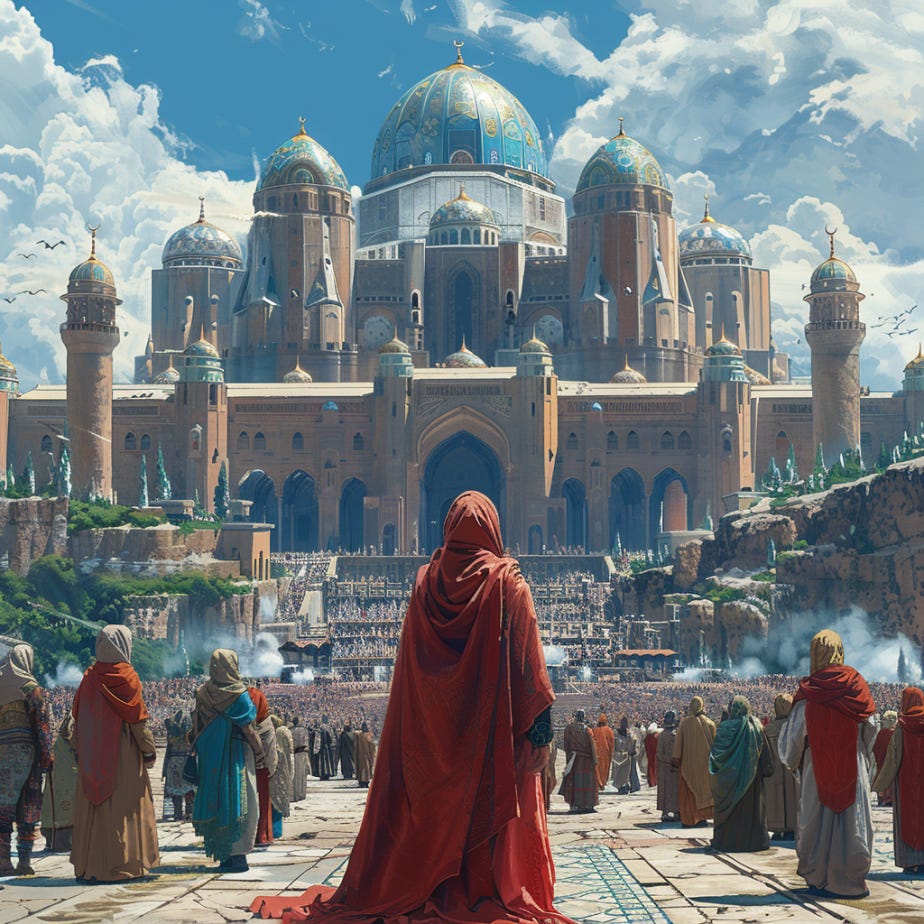
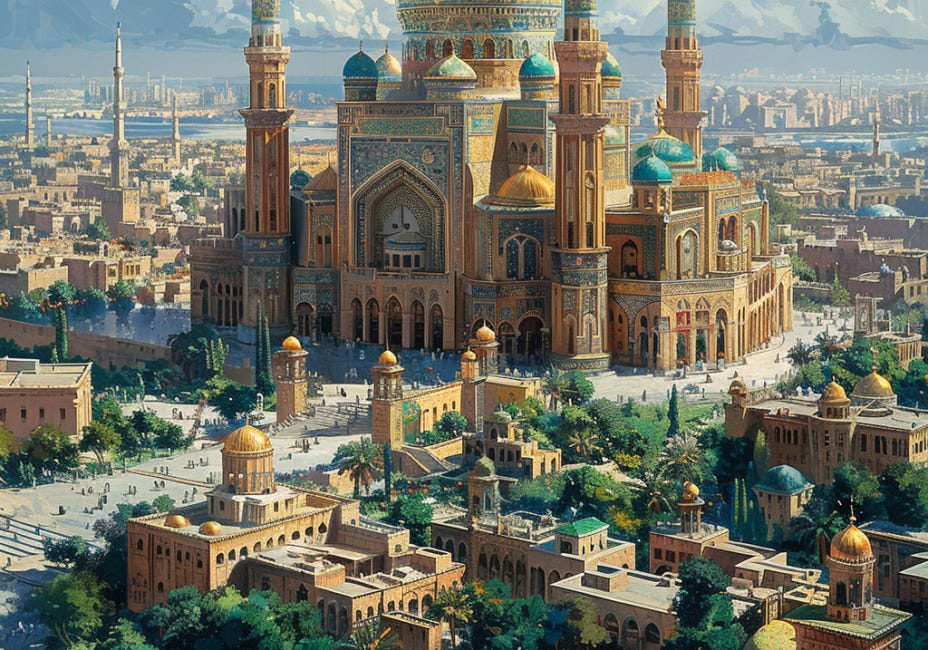
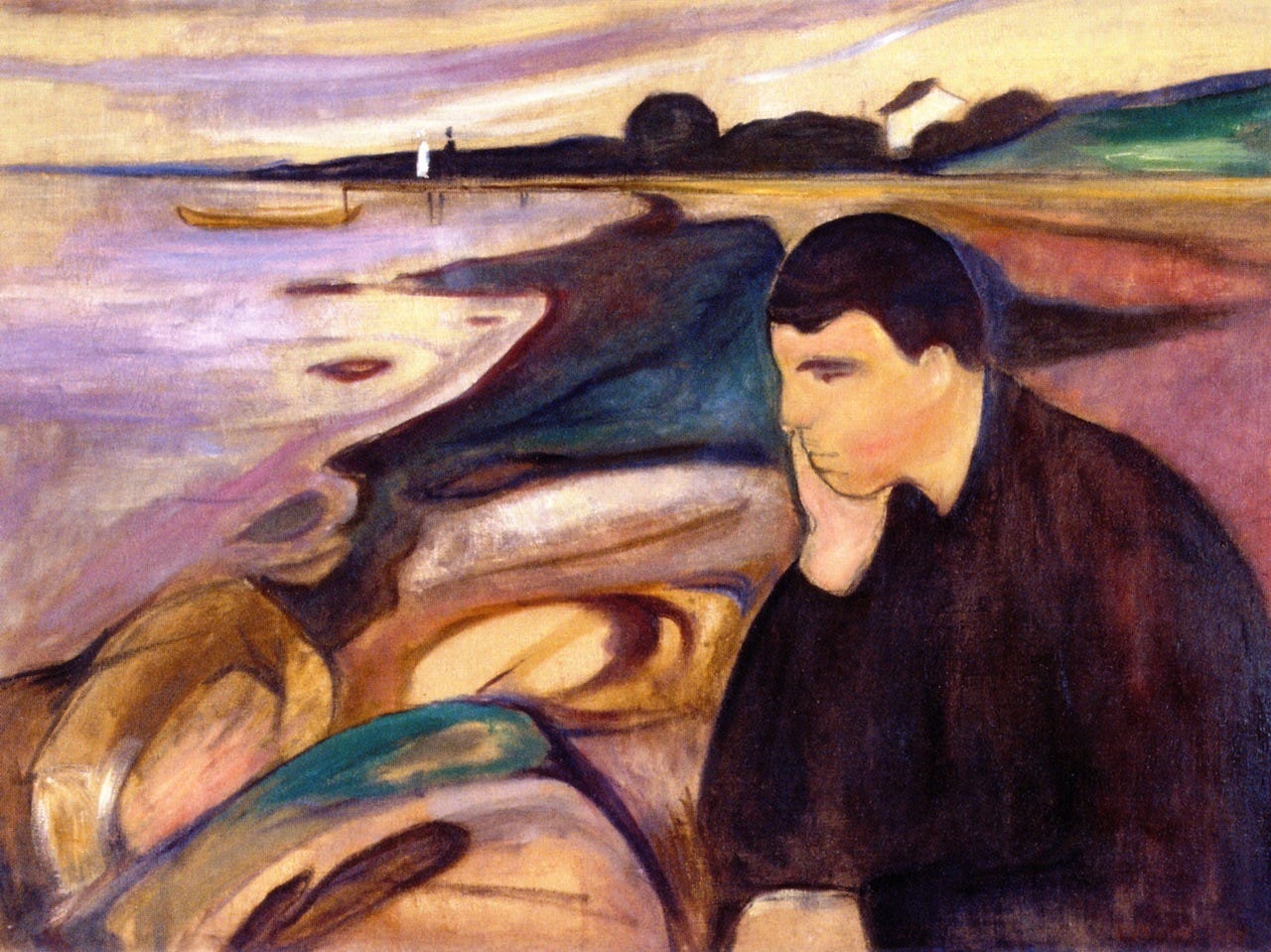
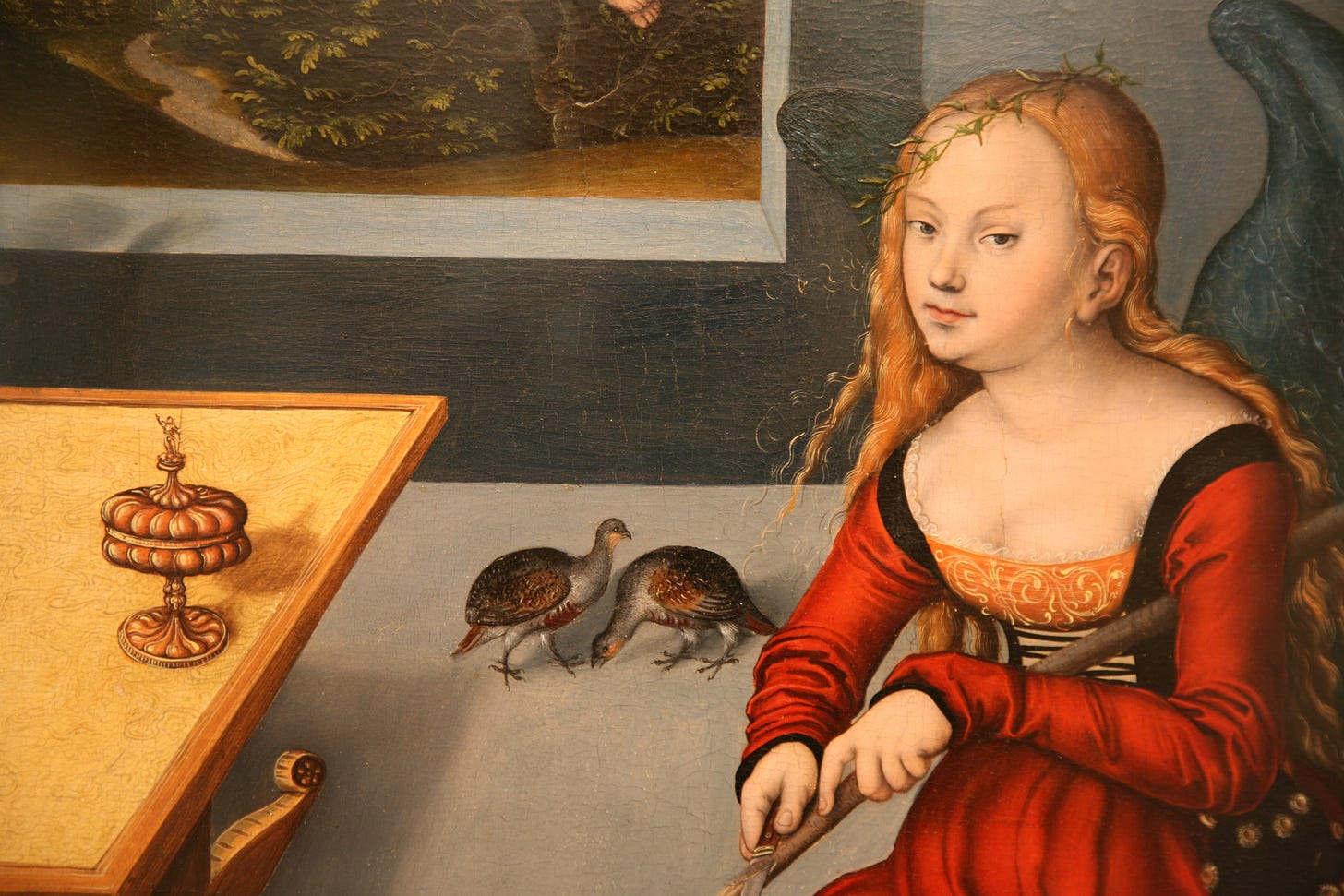
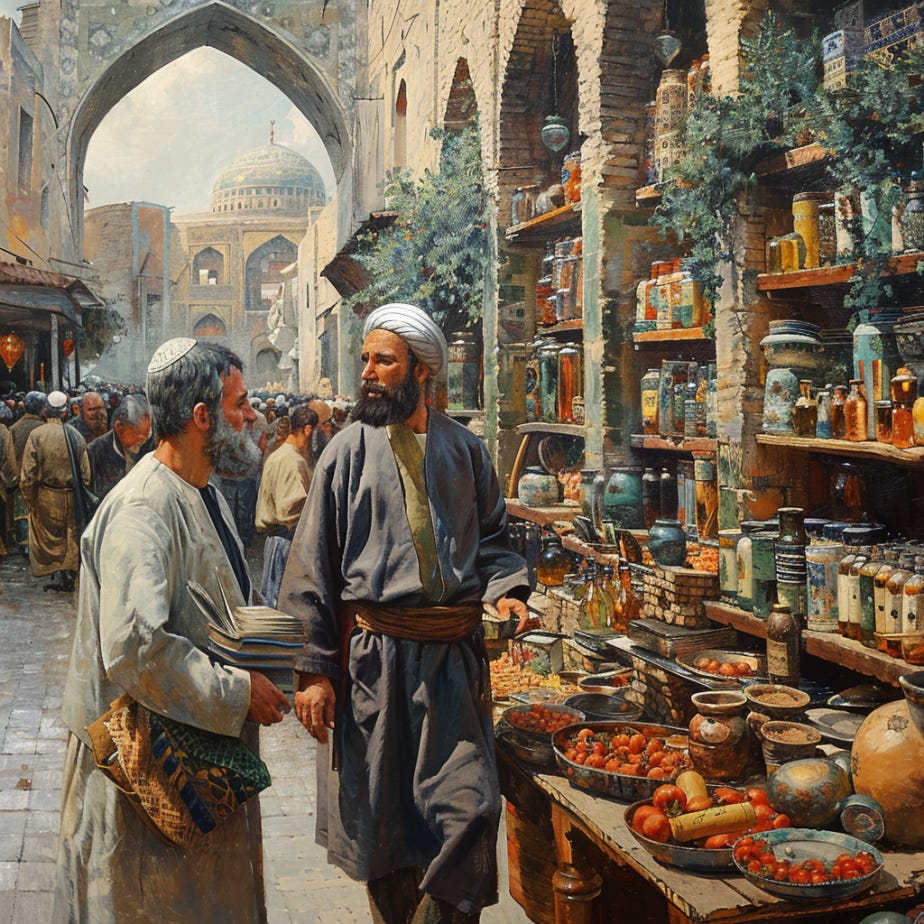

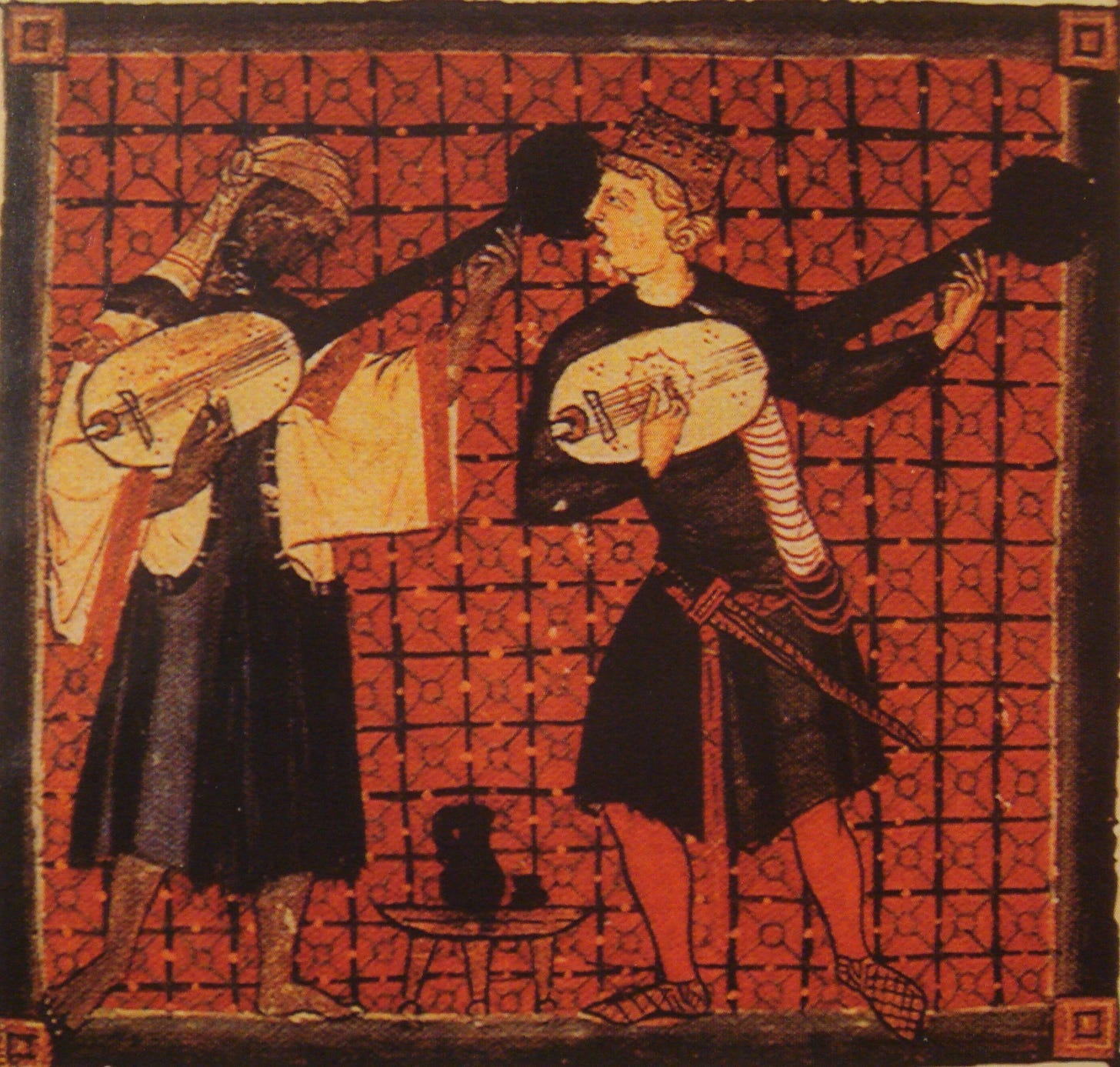

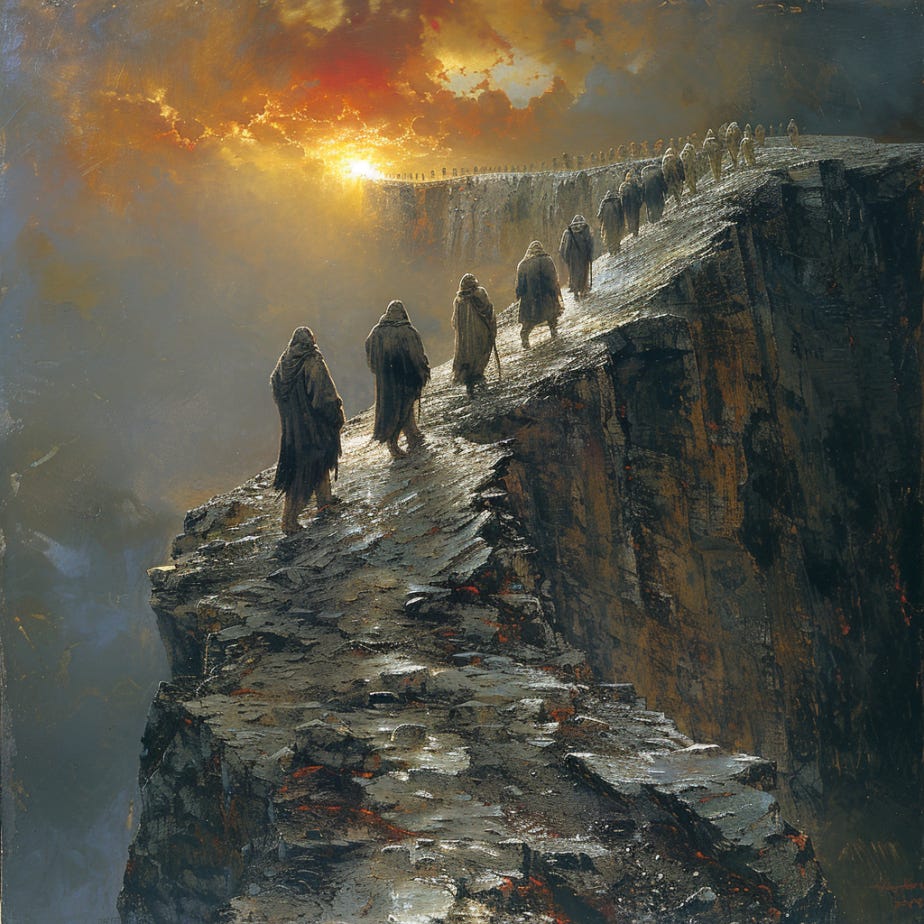
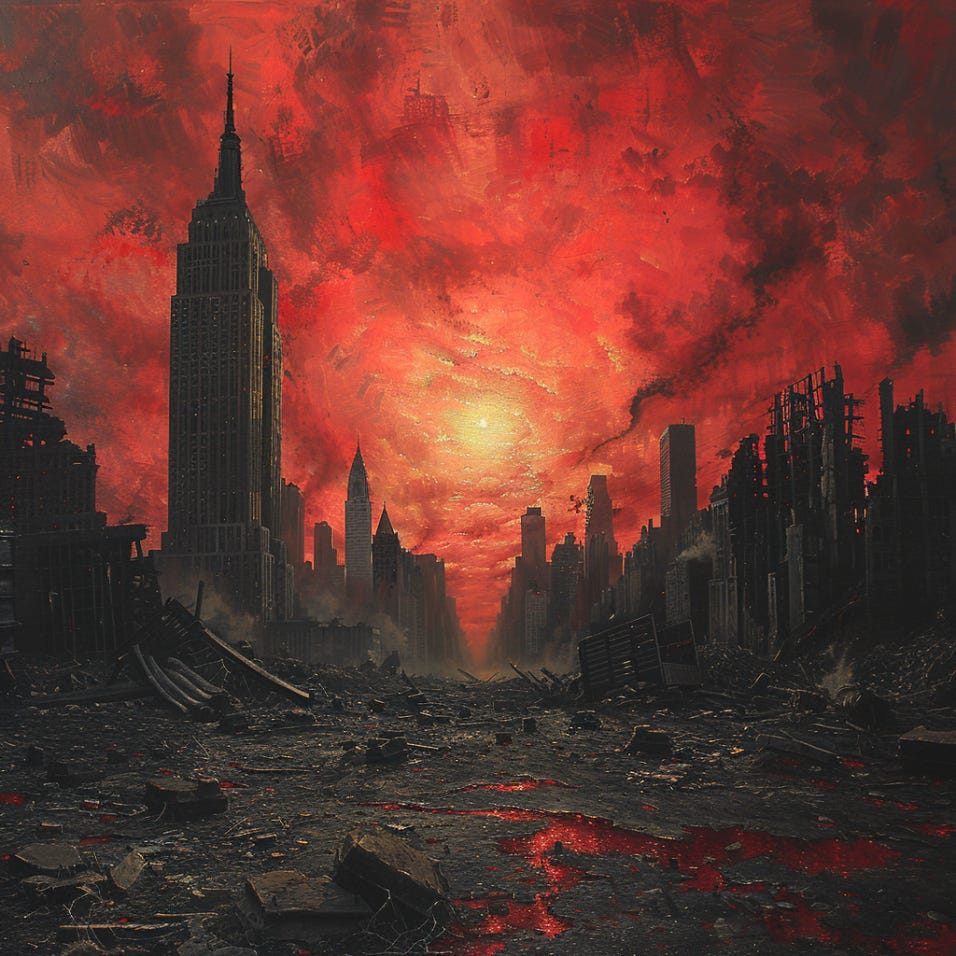

Dear Mr Doom, you Eurabian series is thought-provoking indeed!
A couple notes from the westernmost EU satrapy formerly known as Spain, a land shaped during +800 yrs by both the coexistence AND fighting between Christianity and Islam:
First of all: blanket terms like "the West" or "Europe" are shallow and inexact. To be more precise, this "the West" thing should be re-defined as "the current Anglo- or Angloamerican dominant and pervasive media culture". And it is abhorred in many (small town, rural) European areas; this is true, for example, in middle Spain, rural France & Italy, Hungary, or the Balkans. This is especially noteworthy in the essay, where the author is constantly talking about "the West" but centering its argumentation around the UK.
Muslim immigration to Europe could be all good and dandy except for the following facts:
1) several Muslim countries have emptied their prisons of petty criminals and sent them to Europe (this is proven fact for e.g. Morocco and Algeria, and suspected of other Maghreb countries). Win-win situation: prison costs go down, petty criminality goes down, police overwork and prison saturation reduced, and the problem is foisted upon the receiving country. Example: in Barcelona, 75% of petty crime is nowadays perpetrated by Maghrebi youth gangs.
2) Some immigrants (specially of criminal background, and mostly related to drug traffic) work for the intelligence agencies of the mother country. Also a proven fact, e.g. in the case of the 11-M Madrid bombings. So, yes, there is a sort of Fifth Column in place collecting intelligence and building networks inside Europe indeed.
3) Many (if not most) mosques in Europe are financed (and their imams trained and vetted) by Saudi Arabia (nasty wahhabis), Turkiye (Erdoganists) and to a lesser degree, Morocco and other countries. Do you sincerely expect that these preachers are not going to advance the geopolitical interests of their sponsors??
4) the fallacy of the missing European workforce. We actually don´t need that many immigrants as supposed, thank you. In Spain we have 3M unemployed people and 2.6M legal immigrants with a legal job (data May 2024). No more comment needed. There are certainly areas with an acute lack of workers, but if you dig into the details, the open jobs in many cases require a strong technical or professional background.
5) the fallacy of the missing Europeans. The numbers of native Europeans are falling. So what??! This is not the 19th or early 20th century where the sheer mass of manpower was essential for the rise and prevalence of countries & Empires. The advances in robotics & automation can more than compensate for the fall in net population in industrial and service output. Just look at Japanese or Korean industrial titans. Even war-fighting does not require as many soldiers as before. The experience of the Ukraine war proves that, as well. Air, sea and ground drones dominate the battlefield, and many crewed systems (tanks, artillery, boats...) have more and more automated functions (gun loaders, target acquisition, navigation, surveillance...) so that human crews are getting smaller as a result.
6) the US-dominated European institutions (NATO, EU), do repress any kind of grassroots sovereignty movements, but on the other hand are open to lobbying and political interference by Muslim interests (see Qatargate and Moroccogate in the EU). The case of Spain is specially infuriating because Morocco (the US' and Israel´s best buddy in the Maghreb, by the way) has literally bought a large number of Spanish politicians and media figures and has also probably collected a lot of blackmail of the current President & his wife, using the infamous Israeli Pegasus spyware. So, sorry but i do not buy that a medieval monarchy (Morocco) that opresses its own people and controls the mafia networks that move illegal immigrants from Africa into Europe is not going to use (some of the) Moroccan immigrants living in my country for subversion and destabilization activities. One last example: the political party in Catalonia that is pro-independence and pro-Morocco. Basically working to first destroy Spain and then turn Catalonia into an Islamic Caliphate subject to Morocco. Here:
https://www.larazon.es/cataluna/controversia-cataluna-cartel-preelectoral-banderas-marruecos-cataluna_2024030665e8492cab79d800017fbba5.html
Last thing: my own personal experience with (mostly older - in their 40s and 50s) Maghrebi people here in Spain has been nothing but excellent. Very hard workers, putting lots of hours in the most exhausting jobs; just wanting to give their families a better future.